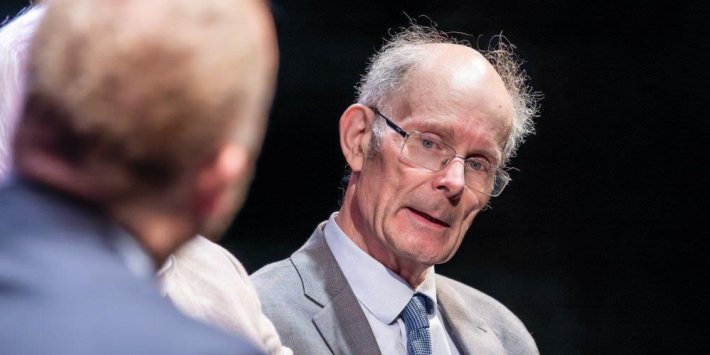
3 min read
Labour must improve the NHS and make people like the cost of living has eased to have any prospect of retaining power at the next general election, leading political scientist Sir John Curtice has said.
Curtice, discussing his ‘Repairing Britain’ chapter of the National Centre of Social Research’s new British Social Attitudes Survey 2025, said the government must be able to show progress on these issues to have a chance of bouncing back from its “unprecedented” fall in popularity.
The survey of 4,120 people, carried out between September and October and published on Wednesday, found record levels of dissatisfaction with the health service. Nearly two-thirds of respondents (59 per cent) said they were dissatisfied with the NHS, while 21 per cent said they were satisfied. In 2019, before the coronavirus pandemic, NatCen found satisfaction with the health service at 60 per cent.
When it came to the cost of living, a record 26 per cent of people said that they were struggling on their current income, up from 16 per cent before the pandemic. Over the same period, the proportion of people who said they were living comfortably fell from 50 per cent to 35 per cent.
“The NHS and the economy, living standards… these are the two issues that pretty much concern everybody,” said Curtice.
“No previous government has lost support in the opinion polls so quickly, so soon in its life…
“If the health service is transformed by 2029 and if the economy is much better, people are feeling better off, living standards have improved, then there must be a reasonable prospect of the government being able to turn its fortunes around, so long as… they can actually persuade people that that’s what they’ve managed to achieve.”
Curtice, who is a senior fellow at NatCen as well as an author at the UK in a Changing Europe think tank, said that the government has failed to communicate a clear and consistent story of what it is trying to achieve since being elected on a landslide in July.
“This government doesn’t have a story about what it’s about, and therefore people don’t know where it’s going,” he told PoliticsHome.
The political scientist pointed to the decision to scrap the winter fuel allowance for pensioners, before later issuing a partial U-turn, and cutting disability benefits despite it not being in the Labour general election manifesto, as examples of confusing messaging.
“They tell us: ‘Oh, the world is in a worse state than we thought, there is this £22bn black hole, so we’re going to cut this and cut that’.
“And people went: ‘Hang on, whatever we thought Labour was about, we didn’t think they were about cutting those kinds of things’,” he said.
Curtice added that Labour will find it difficult to win back large numbers of people who have switched to Nigel Farage’s Reform UK while the right-wing party takes positions that “matter most” to its voters on areas like immigration, Brexit, the equalities agenda and net zero.
“What really distinguishes Reform voters is not whether they’re left wing or right wing, it’s whether they’re socially conservative rather than socially liberal…
“Our politics is no longer about left versus right. It’s also about this divide between social liberals and social conservatives, which was central to Brexit, and it’s all still with us.”
The pollster told PoliticsHome that Farage’s ability to connect with voters sets him apart from his rivals in Westminster.
“[Farage] is the only charismatic one of our leaders… He talks with humour, he talks in a way that people can hear and understand. It’s marmite, but some people like marmite.”





